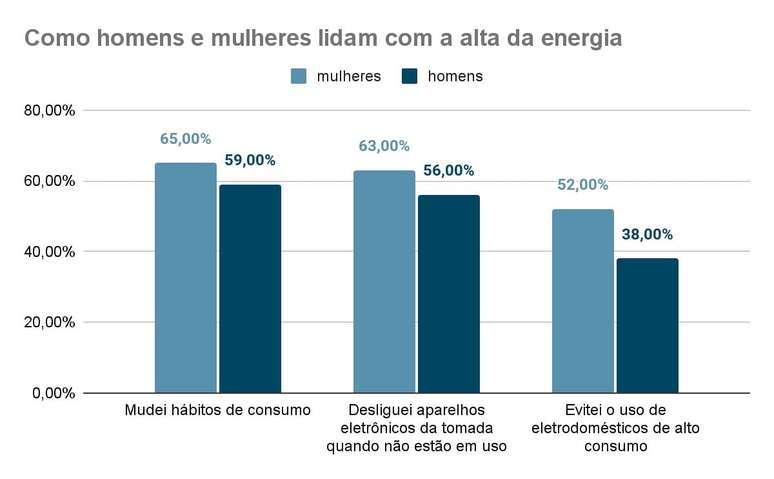
Research shows women are rethinking their household habits to cut electricity bills
summary
Women are at the forefront of changing their habits to save energy and are planning to adopt technologies such as smart devices and solar energy, but they face barriers such as cost and installation complexity.
In a scenario where energy costs are repeatedly rising, women are most at the forefront of changing household habits. The Future of Energy survey, conducted by LUZ in collaboration with the Possible Futures Institute, shows that while women are taking practical steps to limit the immediate impact on domestic budgets, they want access to structural solutions that provide predictability and sustainability in the long term.
According to the survey, 65% of women say they have already changed their spending habits due to increased utility bills, compared to 59% of men. The most common actions include unplugging appliances (63% vs. 56%) and avoiding using high-power appliances (52% vs. 38%).
Main highlights:
In the face of rising electricity prices, 65% of women changed their spending habits compared to 59% of men.
Immediate actions stand out, such as unplugging appliances (63% vs. 56%) and avoiding high-power appliances (52% vs. 38%).
88% of women believe it is important to have alternatives to their current energy sources.
64% plan to install smart electrical devices in the next two years.
31% have already installed or plan to install solar energy or another alternative power source.
Women are also more willing to take advantage of technological solutions to reduce electricity costs. 88% believe it is important to have an alternative to their current energy supplier, 64% plan to install smart devices in their home in the next two years, and 31% have already installed or plan to install solar energy or other alternative power sources.
“The data shows that women are more interested in technology. It’s not that they’re so obsessed with solutions like energy management applications or solar energy, but because there are practical barriers to overcome, such as cost and installation complexity,” said Deborah Mota, head of innovation at digital energy supplier LUZ.
The study found that the main barrier was cost (63%), followed by installation complexity (16%). “Once these barriers are resolved, women will be the first to adopt new technologies,” the executive added.




